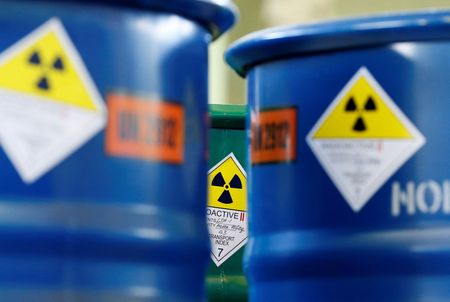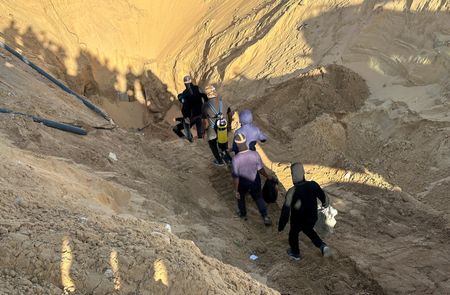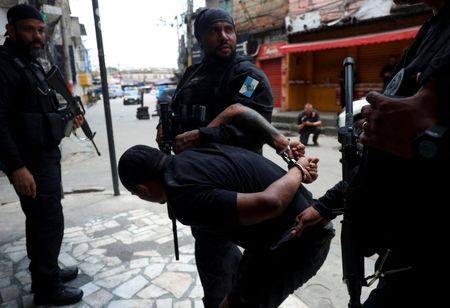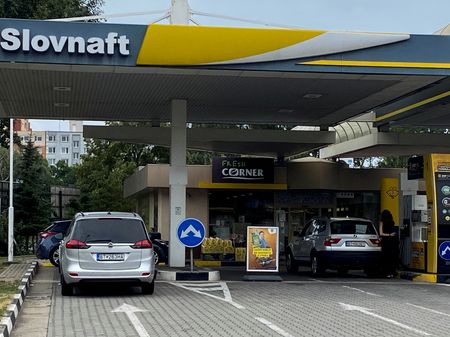ASTANA (Reuters) -Kazakhstan is discussing with Finland the possibility of supplying its uranium to Finnish nuclear power plants, the head of the Kazakh nuclear energy agency, Almasadam Satkaliyev, said on Tuesday.
Finnish utility Fortum, meanwhile, told Reuters that Kazakhstan was “a potential supplier”.
Satkaliyev did not give details of the volumes involved as he talked to reporters during Finnish President Alexander Stubb’s visit to the Kazakh capital, Astana. He also did not mention a possible start date for deliveries.
Kazakhstan, the world’s largest uranium producer, mined 23,270 metric tons of uranium in 2024. It has said it plans to produce 25,000 to 26,500 tons of uranium in 2025.
FINLAND PHASING OUT RUSSIAN NUCLEAR FUEL SUPPLIES
Finland has five operating nuclear reactors across two nuclear power plants. Last year, nuclear power accounted for 39% of Finland’s power production, the largest source followed by wind power at 25%.
Contacted by Reuters, Fortum said it was diversifying its nuclear fuel procurement to its Loviisa power plant “across the supply chain from raw uranium to conversion and enrichment services to full manufacturing”.
“Kazakhstan is a significant uranium producer and remains a potential supplier,” Fortum said in an emailed statement. It declined to say if it was involved in the talks in Astana on the topic.
Last year, Fortum said it had begun sourcing nuclear fuel from U.S.-based Westinghouse Electric to start phasing out supplies from Russia.
Previously, Fortum’s Loviisa plant depended on nuclear fuel from TVEL, a subsidiary of Russian state-owned power company Rosatom.
Kazakhstan has no nuclear power plants of its own but is estimated to have about 15% of the world’s uranium reserves, second only to Australia.
There was no detail on how landlocked Kazakhstan would ship uranium to Finland, but any such supplies would likely go through Russia.
The European Union, of which Finland is a member, has imposed sweeping sanctions on Russia since its full-scale invasion of Ukraine in 2022. Cargo trains are still allowed to cross Finland’s 1,340 km (833 mile) border with Russia, even though passenger services have stopped.
Finland in 2023 joined the U.S.-led NATO military alliance as relations with Russia soured.
Kazakhstan has trodden a diplomatic tightrope on the war in Ukraine, maintaining close ties with Russia, its neighbour and major trading partner, while also supporting Ukraine’s territorial integrity.
(Reporting by Tamara Vaal in Astana. Additional reporting by Anne Kauranen in Helsinki. Writing by Felix Light. Editing by Andrew Heavens and Mark Potter)











